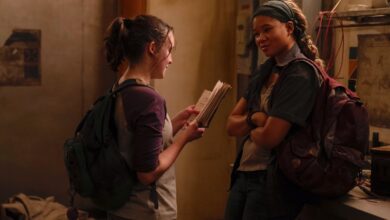The Decameron Review: “Dirty” Series, Crazy, Different From All the Others and That’s the Beauty of It!
Cast: Zosia Mamet, Saoirse-Monica Jackson, Tanya Reynolds, Amar Chadha-Patel, Leila Farzad, Lou Gala, Karan Gill, Tony Hale, Douggie McMeekin, Jessica Plummer
Director: Michael Uppendahl, Anya Adams, Andrew DeYoung
Streaming Platform: Netflix
Filmyhype.com Ratings: 3.5/5 (three and a half stars)
Netflix’s The Decameron loosely adapts Giovanni Boccaccio’s classic into a tale of survival to the last line, about classism and social inequality. Out July 25 on Netflix. Netflix has decided to bring Boccaccio’s novellas to the small screen by adapting one of the cornerstones of Italian literature, The Decameron. A seemingly bizarre but extremely far-sighted decision by the streaming platform has reminded us, with a series that is truly well-made and much more modern than it may seem, what the great power of a classic is: always having something to say, whatever the historical era in which it is read, or as in this case, seen. Trailers and previews that circulate about a film or a TV series often create certain expectations in the mind of a future viewer, which are then betrayed during the viewing of the product. This is exactly what happened to me with The Decameron. Reading the plot, watching the trailer, and observing the whole project and the initiative, I had the idea of a highly satirical, incorrect, ironic, and vulgar product but in the sense of a tribute to the period and the short stories of reference.
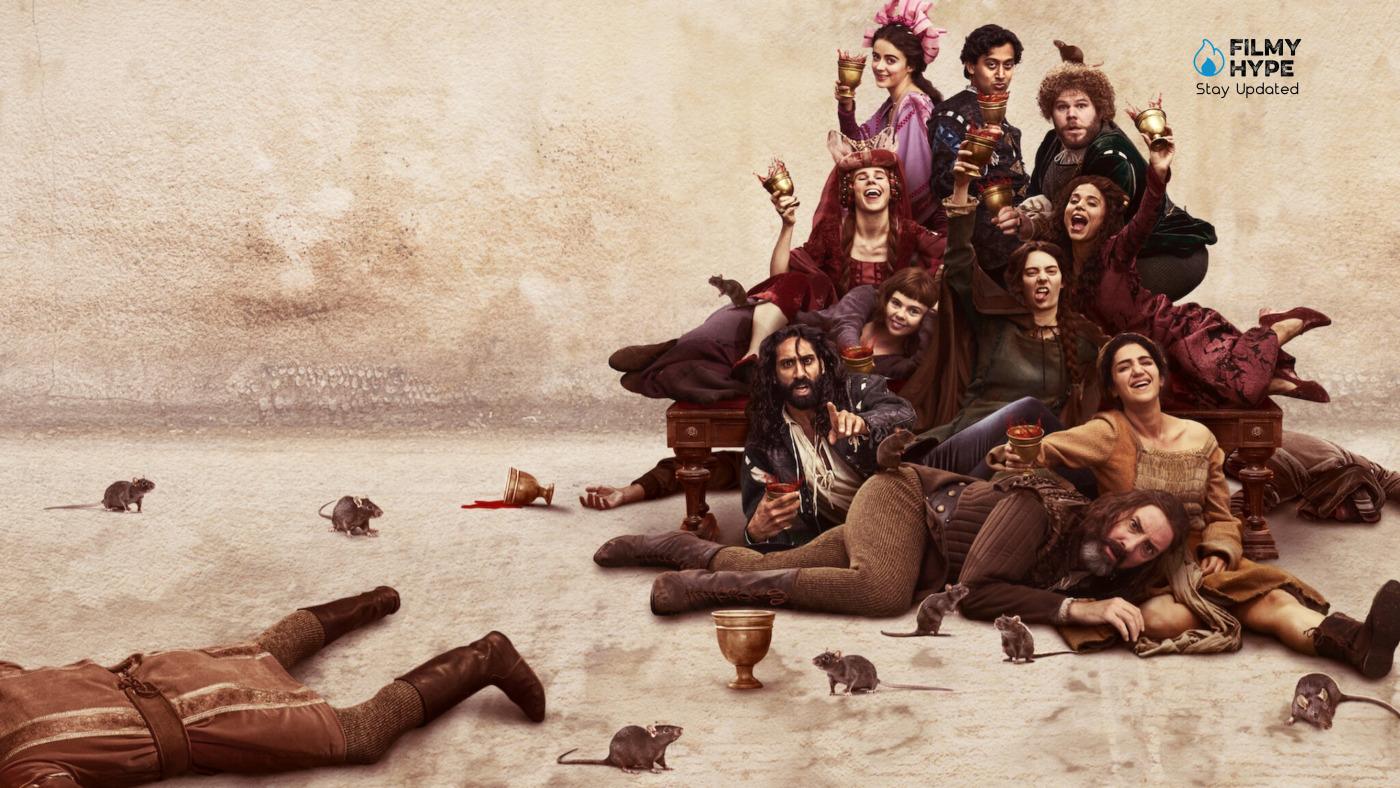
Instead, The Decameron is a more serious TV series than expected, with mammoth episodes sometimes lasting an hour, which tells the same story of the same characters repeated episode after episode and which has its best moments precisely in that ironic key that was supposed to be its soul. The search for a satire that is not extemporaneous but built around a story is positive, but the flaw is the absence of a really solid story. The doubt that arose before watching about whether it could be a brilliant operation, or a resounding flop disperses after starting the episodes: it is not one or the other because it is a series that does not dare and does not provoke, it is normal. And its normality ends up being a burden. Trailers and premises alienate those looking for a historical series, and viewing alienates those looking for a comic/satirical product, so who is The Decameron aimed at?
The Decameron Review: The Story Plot
The series will focus on the short stories collected in Boccaccio’s Decameron, transporting us to 14th-century Florence, as Florence faces the Black Death epidemic. A group of seven girls and three boys, who escape it, take refuge in a villa in the Tuscan countryside to isolate themselves, spending their time having fun and telling each other stories. The duration of their isolation will last exactly as the title suggests, derived from the Greek “[work] of ten days”, while the merry band of young people will take turns telling each other ten stories, often humorous in tone and with references to the bucolic eroticism of the time. Boccaccio’s book created a scandal in its time, and the series inspired by it seems to aim to do the same, even if it probably does not follow the events of Giovanni Boccaccio’s Decameron exactly and faithfully.
The Decameron Review and Analysis
The public’s anticipation for The Decameron was high, the hype was felt, and since the release of the trailer, various opinions were divided as to whether it was another success or a flop. The series was also filmed largely in Italy and Cinecittà, even if the cast is almost entirely Anglo-American and with only a few Italian faces, and to tell the truth not even for the main roles. However, it seems that Boccaccio’s work has been completely distorted, all for the use and consumption of an audience that feeds on “sit-com” style comedies and without having to put much effort, or rather nothing, into watching the TV series, which is, at least, tacky. Unfortunately, it is not the first time that film adaptations of Boccaccio’s Decameron have greatly disappointed the public. And Netflix’s The Decameron could have done much, much more than that.
In previous film adaptations, the audience for which the adaptation of The Decameron was made, such as Pasolini’s Decameron or the Taviani Brothers’ Meraviglioso Boccaccio, were not at all a young target. Moving forward in time, even in the 70s, the films inspired by the work were vulgar and had little to do with the work of the Florentine author, whose intentions were to: dedicate the book to those afflicted by the pains of love, delight them with pleasant stories and give useful advice, Addressing the book in particular to a female audience. And especially, to women who love. The fact is that it is not the first time that an attempt has been made to transform a work of such depth into one with a more sensual and even more carefree tone, but those who have done so with other works have sometimes succeeded in obtaining at least a result that could be dedicated to an audience with a well-structured and proud identity.
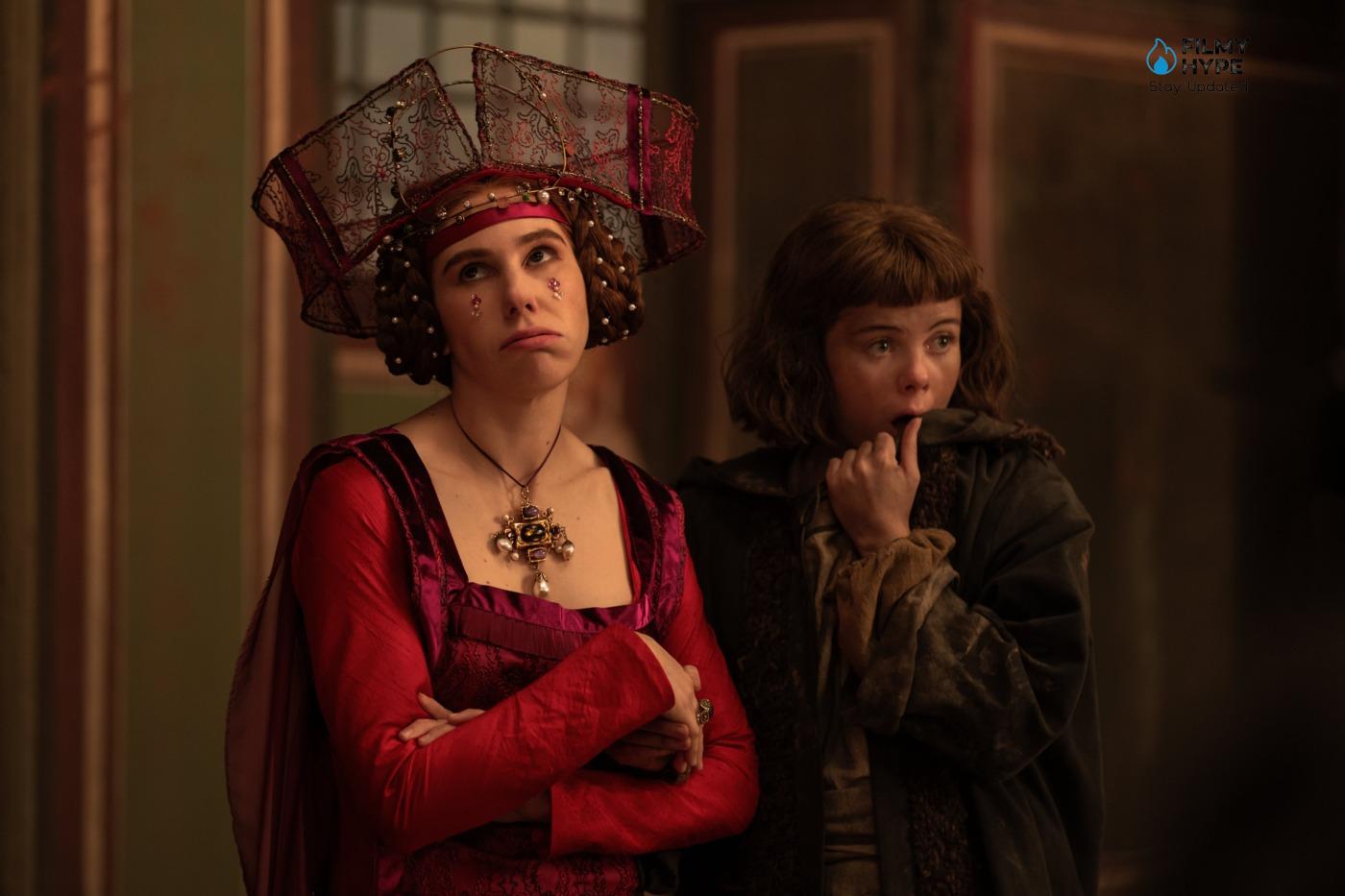
Some say that this series winks at young people, using the black plague with the COVID-19 pandemic as a metaphor. Of course, young people have suffered, and, understandably, many want to have fun and party, after a period of “segregation”. But it also takes more than due respect for a literary work, respecting it at least the minimum; even if this means making the series more or less boring. If you really wanted to make a period drama with some eroticism, as successful series like Bridgerton, Queen Charlotte, and others that have recently been “born” have already done, following in the footsteps of Bridgerton, you could have created a completely original TV series but set it in a bygone era. Example: Bridgerton. You could have made a period drama TV series, with some eroticism, and a lot of it if you wanted, but originality and a sense to give to the series were missing.
In all this, one of the few positive notes that can be said about this Netflix The Decameron is that the costumes have been well taken care of, and behind this is the Oscar winner Gabriella Pescucci, considered one of the greatest costume designers in the history of cinema. The creator of the series is Kathleen Jordan, already behind Teen Age Beauty with Jenji Kohlan and one of the minds of Orange is the new Black. The beauty of this series is that it has the great intelligence to address delicate themes such as death, conflicts between social classes, the psychological consequences of a pandemic, violence between human beings, sexual freedom, and betrayal, with a very powerful irony and lightness. Thus, the messages, filtered by comedy, arrive straight to the conscience of anyone who is watching the series.
The Decameron is a brilliant, irreverent tale that is not afraid to get its hands dirty and is so well constructed that it literally leaves us glued to the screen. It is inspired but does not copy the work on which it is based, it takes inspiration from it modernizes it, and entertains the audience on multiple levels by bringing universal archetypes to the stage that have the strength to reach everyone’s heart. The cast does an exceptional job in interpreting the madness and desire to live of human beings who know they are going to die at any moment and this vital impulse of each of the characters is so strong that it comes out of the screen and throws that same desire for freedom, for survival, for life at us. And there is no more beautiful feeling that a TV series can give to the public.
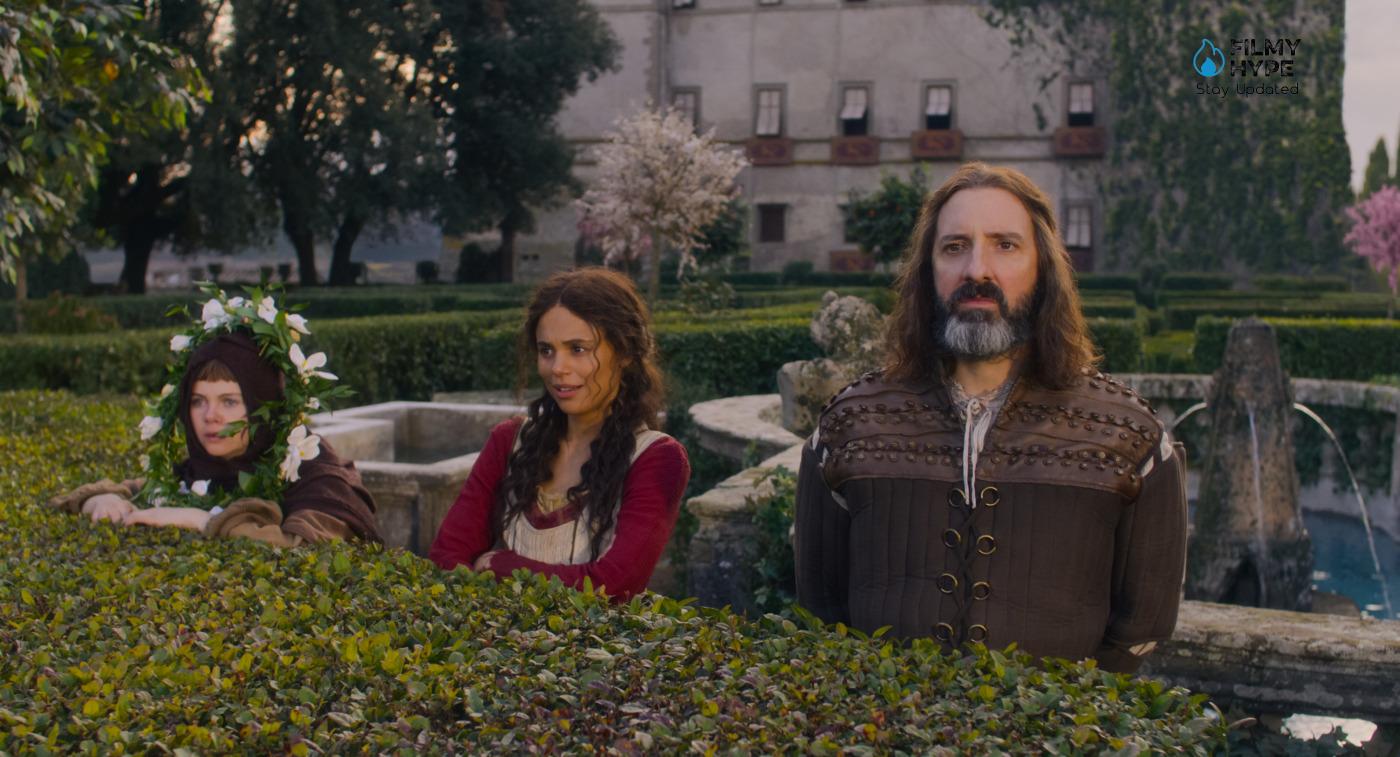
You laugh with The Decameron, you are entertained by palace intrigues, and you witness an evolution but also an involution of characters who unmask themselves over time, they remove those social labels that limit them until they free themselves and express themselves in all their essence. The plot of this series flows with great fluidity and is so free from already known narrative rules that the beauty of The Decameron lies precisely in this, in its unpredictability, in the ability to not let you know where the story is going or to imply how far it’s crazy and fascinating, unruly and irreverent protagonists can go, but all with a strong message to send to the public. Netflix has done a great job with this series that reminds us of a bit of Bridgerton but unlike the Shonda Rhimes series, it takes off any kind of respectability, bourgeois rigor, or aesthetics. The Decameron is a “dirty” series, crazy, different from all the others and that’s the beauty of it.
So let yourself be surprised by this Netflix title, let your hair down by its madness, let yourself be entertained by its absurd but wonderful characters, and enjoy this story that leaves you with an incredible desire to live. One could argue about why in 2024 adapt a reiterated classic like Giovanni Boccaccio’s The Decameron, and above all why not produce it in Italy but let the Americans get their hands on it, directed by Michael Uppendahl, who had already dealt with crimes and human ineptitude in American Crime Story and Fargo. A reflection that is difficult to make sense of, but which makes the final product even more over the top and surreal. Despite the care taken with the sets and costumes, their workmanship and staging seem poor and simple, under the pretext of the perspective of the original story.
Here, however, we are faced with mere entertainment without too many flashes, including the acting of the interpreters – the cast includes Tony Hale (Veep), Zosia Mamet (Girls), Saoirse-Monica Jackson (Derry Girls), Amar Chadha-Patel, Leila Farzad, Tanya Reynolds, Douggie McMeekin, Jessica Plummer, Lou Gala and Karan Gill – deeply exaggerated and exasperated to try to trace the original paper version, becoming only caricatural. The most interesting aspect is certainly the discussion on social inequality and privilege that affects a few to the detriment of many: it’s all here, especially in the development of the plot, the most intelligent and current focus of this Netflix Decameron, which shows how the lack of social equity can play bad tricks and bring out the worst instincts. But sometimes, karma exists and pays back with the same coin. A great lesson in life and divine justice.
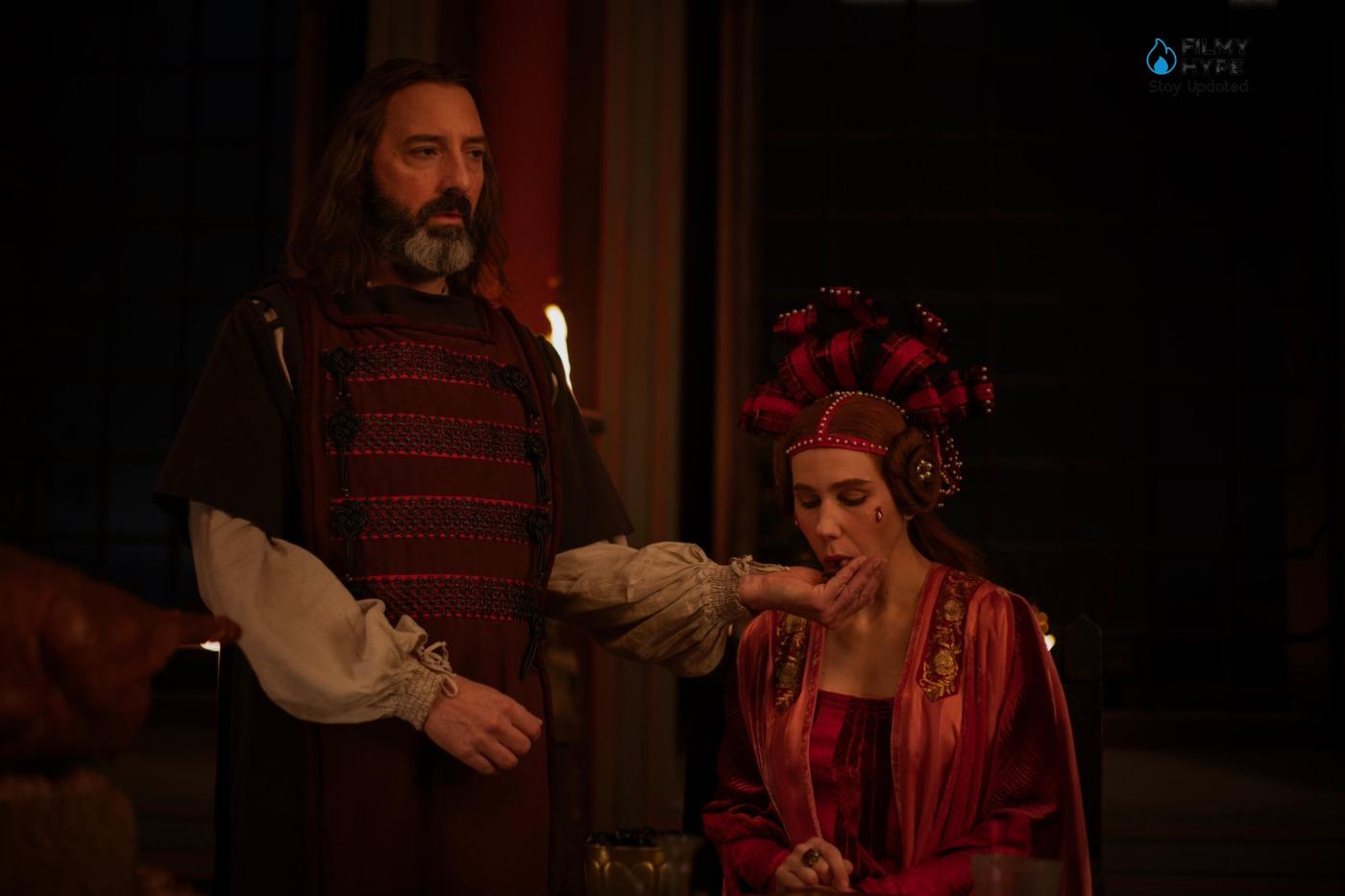
But in the Florentine countryside painted by Kathleen Jordan, madness and terror are not the only emotions that echo in the air. Boccaccio’s dramedy dedicates ample space to the theme of eros, analyzed and expressed in its many faces: marital and extramarital love, homosexual and platonic love, as well as fraternal and maternal love. Through unfortunate and tear-jerking love stories, The Decameron attempts not only to offer a wide sentimental catalog that, against the backdrop of the Black Death, highlights eros in its diversity and vulnerability but also to explore the complexity of human relationships, demonstrating how love can be a fundamental driving force in times of crisis.
Of all the stories, that of Neifile and Panfilo stands out as the most sincere and romantic love, even though it lacks the same passion, perdition, and sensuality that characterizes most of the others. A bond, so deep and sincere, that it recalls Shakespearean tragedies, with an ending that evokes the same emotional and dramatic intensity. In addition to the theme of love (characteristic of the original work), the series also addresses the issue of social class struggle. What in the first episode appears as a wild and poorly organized party evolves, throughout the series, into a struggle for survival intertwined with a longed-for social claim. This is how the differences in power are highlighted, evident not only between nobles and commoners but also between men and women, showing the tensions and injustices that characterize a fragmented and archaic (but not too much) society.
In an emergency context such as that of the plague, in which no one is spared for their dowry or wealth, the characters – nobles and servants – find themselves locked together and forced to confront a harsh and implacable reality, even going so far as to renegotiate their roles and relationships. Exploring themes of power, privilege, and resistance, The Decameron enriches the romantic drama with a powerful and current social fresco, accompanied by a subtle and biting critique. With a mix of black humor, costume drama, and a pinch of raw romance, The Decameron presents itself on Netflix as a camp, light-hearted, and playful product, capable of balancing the legacy of the past with the dynamism of the present with originality.
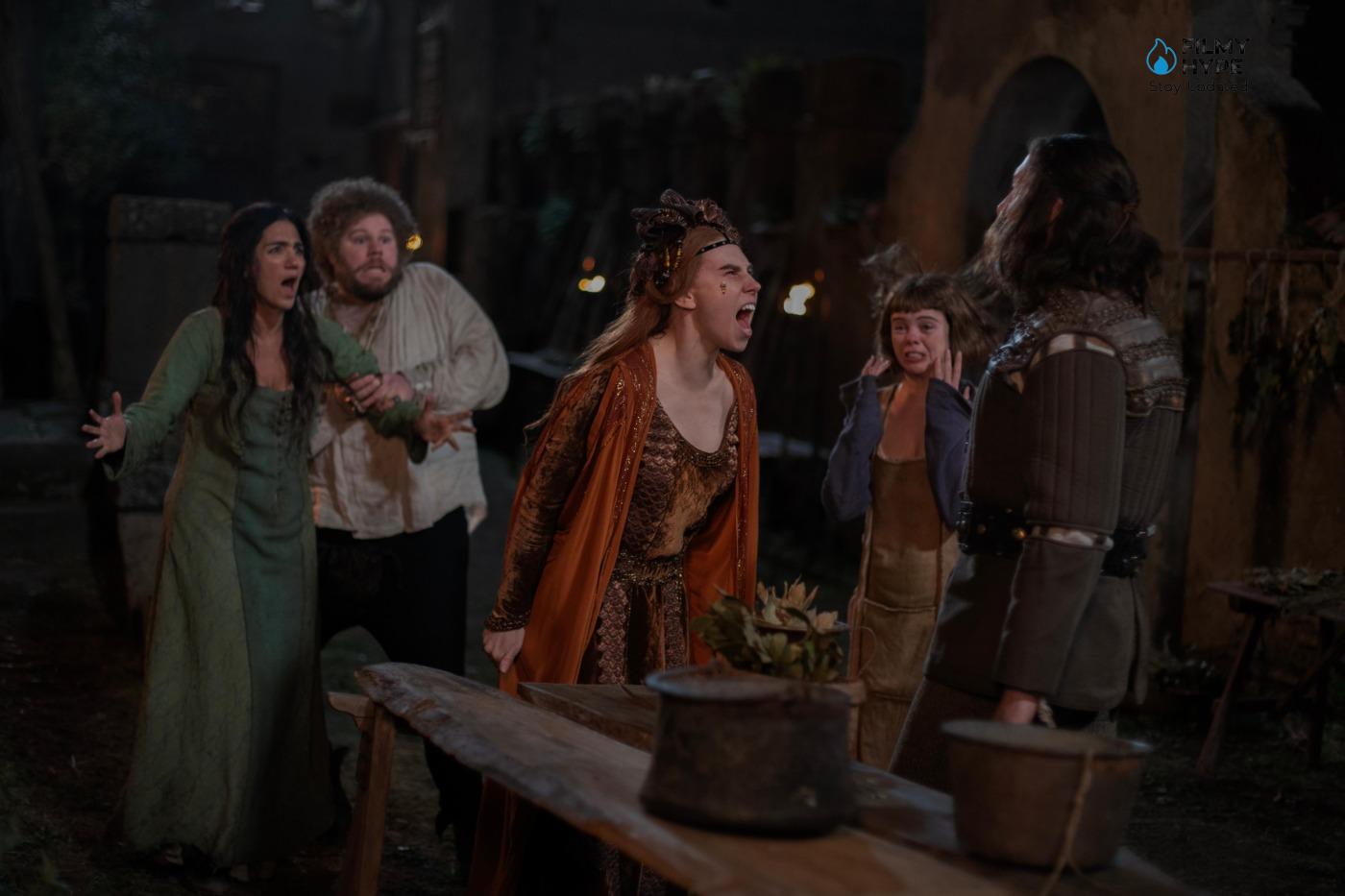
Although some dialogues may seem repetitive and banal, Kathleen Jordan’s series manages to capture the attention of the public, won over above all by the familiar plot and the varied and talented cast, made iconic by the wonderful costumes designed by the award-winning Gabriella Pescucci. The Decameron finally faces the risk of reinterpreting a great classical work, an undertaking that could arouse dissension among literati and traditionalists. However, it manages to overcome this challenge successfully, skillfully exploiting the contrast between historical elegance and contemporary energy, and offering a visually captivating and narratively engaging experience. All these qualities therefore make The Decameron a fascinating addition to the contemporary television landscape.
The Decameron Review: The Last Words
Funny, crazy, and brilliant, The Decameron will become one of your new favorite series, and don’t make the mistake of missing out. Dividing the public and critics, The Decameron is causing a stir, but it doesn’t adhere at all to Boccaccio’s work and it comes across as tacky, much, much more could have been done. One wonders what the point of this Netflix original series is, coming from the US with a fury for a classic medieval Italian novel like Giovanni Boccaccio’s The Decameron, in 2024. The Decameron is a story of sexual liberation and self-awareness that embraces all the protagonists, from Tony Hale to Zosia Mamet, too over the top to become more caricatures of themselves than they were in the original material, from which it takes inspiration to tell a story of misunderstandings and social inequality, thus winking at current events. But that’s not all.






